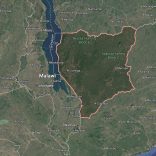Mozambique Pavilion at Expo Osaka reaches one million visitors
Maputo: Chiango residents accuse prison guards of violent, illegal behaviour – Mozambique

O País / Residents called the press
Residents of the Chiango neighbourhood in Maputo have denounced threats and assaults carried out by prison guards based at a local barracks.
The residents told the independent daily ‘O Pais’ that this situation has lasted for about a year and is particularly bad at night. They said that the prison guards patrol the neighbourhood and demand to see the identity cards of any passers-by.
They then demand money from anyone who is not carrying an ID card. Anyone who resists this illegal behaviour is threatened by the armed guards. ‘O Pais’ was told that one young man who resisted was dragged into the barracks and beaten up.
Other gross illegalities committed by the guards include drinking alcohol while in uniform in local bars, threatening other clients with their guns, and determining when the bar will close.
The residents said they had gone to the press because they had complained to the commanders in the barracks, and to the local municipal official, the neighbourhood secretary, but without any results.
Silvestre Massinga, who is a block chief, and thus a low level municipal official, told the paper “We are tired of this situation. At first, when the barracks was installed here, we were pleased, because we thought we would be safer, but now it’s the opposite. Even I have been threatened by these agents demanding documents from people. The worst of it is that we have complained, but nothing has been solved”.
The prison guards have the sinister name of “Unidade de Violencia Declarada” (Unit of Declared Violence), and they are supposed to handle disturbances and riots in the country’s prisons, and to escort vehicles carrying prisoners between jail and the courts. Although they are a police unit, they have no authority to patrol neighbourhoods, or to demand that citizens identify themselves.
‘O Pais’ contacted the National Prison Service (SERNAP) and asked for its reaction to the accusations from the Chiango residents.
Instead of answering, SERNAP demanded a formal request for an interview, which ‘O Pais’ submitted on 6 October. By 1 November SERNAP had still not replied.
SERNAP is thus in violation of the Law on the Right to Information, which gives public bodies 21 days to reply to requests for information.












Leave a Reply
Be the First to Comment!
You must be logged in to post a comment.
You must be logged in to post a comment.